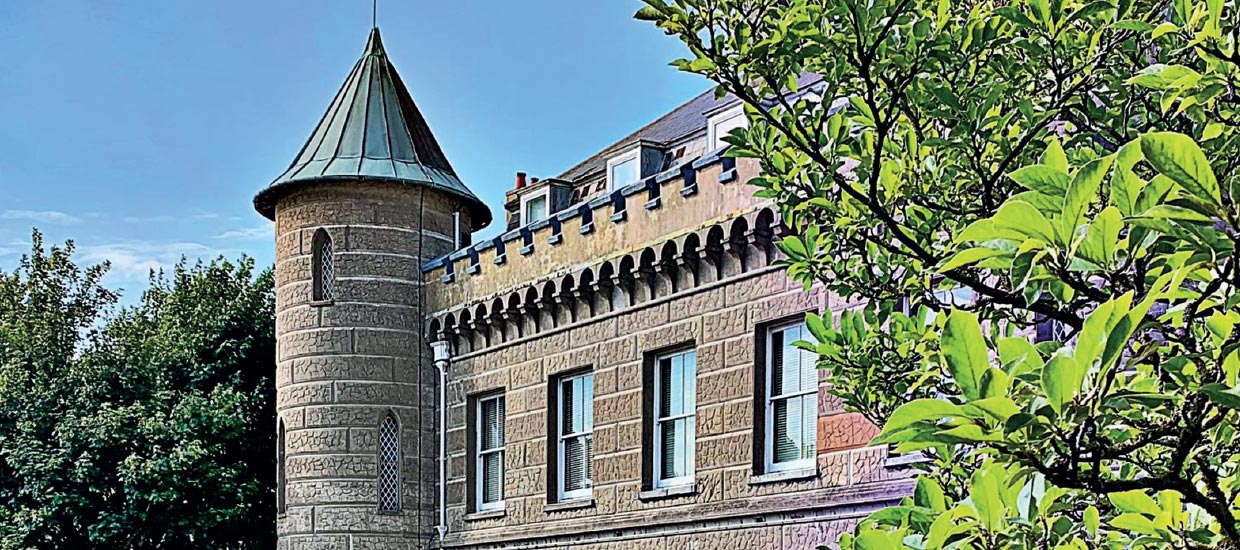We furnished our campus with company cast-offs
How charity Business2Schools helped source furniture for Steyning Grammar School

Although established as a selective school, Steyning Grammar School has been a comprehensive since 1968. It is a large school split over three sites. That number is hopefully soon to increase to four, as we are relocating our sixth form to new premises. We were lucky enough to be offered the site of a former convent school, and this has created an opportunity to provide our sixth form students with their own campus.
The convent site has a lovely environment and very good facilities, including a lecture theatre, café, pool, and designated art rooms and science labs. It will feel more like a college than a school, which makes it attractive to students choosing where to study A Levels. Many of the sisters who taught at the convent school will stay on site (in separate residential quarters) and continue to use the chapel, which will also be open to students.
Our vision is to create a more adult, business-like environment for our students. The campus is due to open in September 2021, after it has been redecorated and access facilities improved. The big issue we faced was how to furnish the new site on a minimal budget.
I was already in contact with Lindsey Parslow, the CEO of Business2Schools, a charity that helped source furniture for our inclusion unit. Launched in 2019, Business2Schools connects businesses that want to give away unwanted furniture and technology products with schools that desperately need such resources. The charity also pairs schools and companies to deliver work experience opportunities, as well as providing mentoring and other forms of volunteering.
I asked Lindsey if she would be able to help furnish our new sixth form. She was delighted to come on board and soon identified companies with unwanted furniture in their London offices that they could donate. I was able to go and select what we wanted from an amazing collection of cast-offs from the McCann advertising agency and an investment bank.
Three lorry-loads of stuff soon arrived at our school. Furniture included some fabulous chrome and blue leather chairs from the investment bank, and some really funky stuff from McCann, including stools on wheels, incredible artwork, shelving, chairs, flip desks, crockery and a huge TV stand on wheels.
We were given some additional furniture by the British Academy and Crown, a corporate relocation company. Offices often have to be cleared very quickly when companies move, and Crown was able to offer us lots of goodies, including gym and canteen equipment, and a boardroom table. In fact, we ended up with so much great furniture that we were able to distribute items to other local schools too!
All our stock is now in storage while work is carried out at the new campus, but we know it’s going to look fantastic when we move in. Creating an environment where our students feel valued will help motivate them, and also acts as a bridge with the world of work.
Now that we’ve seen the process in action, it seems obvious that businesses give their unwanted resources to schools rather than throw them away. It means they are supporting education (and potentially the next generation of workers), as well as cutting down on waste. But it took Business2Schools and its CEO, Lindsey Parslow, to actually make this happen, and their work has made a huge difference to schools like ours.’
- Stephanie Coomber, development officer, Steyning Grammar School, West Sussex (2,250 students)
Working in partnership: Business2Schools
‘I established Business2Schools after seeing how financially stretched state schools were while working as a governor at my children’s junior school in Sussex. I run a company that procures business and travel services for the financial sector in London, so I was also aware of how much stuff was being thrown away by companies.
Matching the two sectors together makes sense in so many ways: providing better infrastructure and technology to schools helps them create a more aspirational environment that will inspire future generations, while companies can address their corporate social responsibility (CSR) goals in an immediately meaningful way, and boost their environmental credentials at the same time.
We also encourage schools to look at more entrepreneurial ways of saving money and building bridges with potential future employers. This will better equip their pupils for the world of work.
Schools in need of resources can register with us and as donations come in we send them an inventory of what is available. You may have to pay £70 or so to hire a Luton van, but when you’re collecting £5,000 worth of free furniture and technology, that seems like a good deal.
With a growing list of business partners, we have so far secured more than £10million of furniture and technology for more than 500 UK schools. This included working closely with the BBC on its ‘Make a Difference’ campaign during lockdown. We’ve found that electric riser desks make a massive difference for disabled pupils as they can sit next to their peers in a classroom. Teachers too have benefited. Something as simple as putting extra microwaves in the staffroom has meant they don’t have to queue to heat up their lunches.
The technology that is donated, particularly PCs and monitors, is very powerful, and so allows schools to run better software. You may need to do a bit of work on your WiFi and broadband systems, but the benefits are that computer-based lessons get underway far more quickly because less time is wasted waiting for computers to load.
Schools can often be reticent about approaching businesses for help, but companies are delighted to see their furniture rehomed to support education.’
- Lindsey Parslow, CEO, Business2Schools
For more information, visit business2schools.com
More on partnerships
- Forming mutually beneficial business partnerships
- Build bridges across your community
- Engage your alumni
